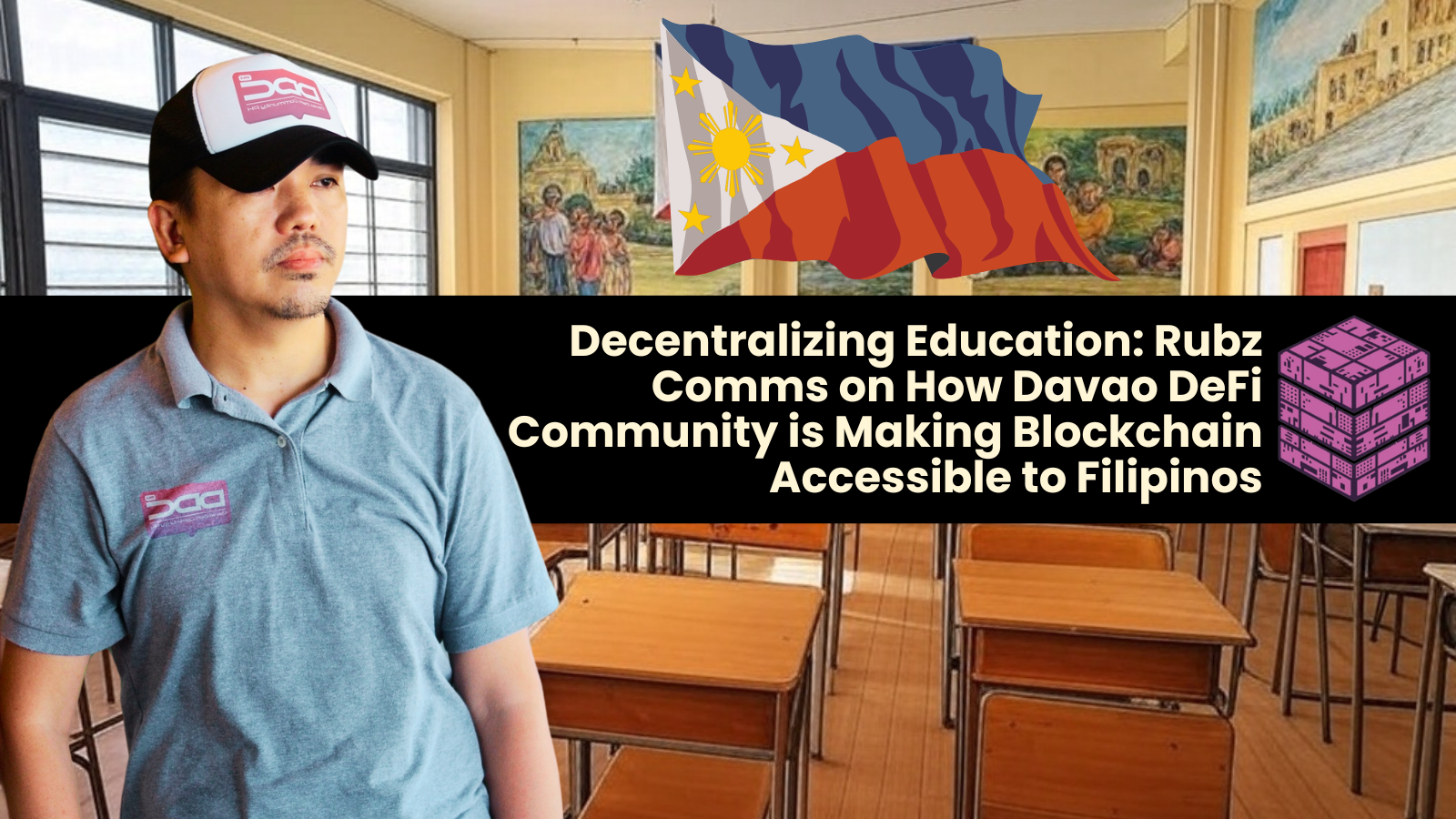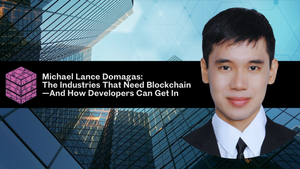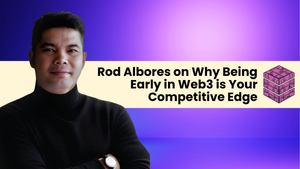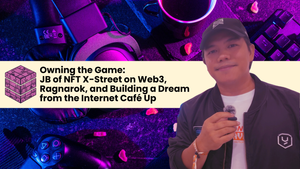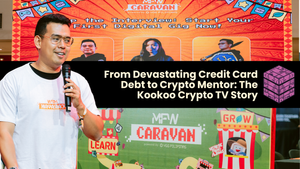It started with a small group of curious individuals gathering to discuss blockchain. Today, it’s one of the most recognized Web3 communities in Davao City.
Despite the rise of blockchain technology worldwide, understanding of Web3 in the Davao remained limited. While major cities like Manila and Cebu had some level of activity, many regions back then still lacked access to quality blockchain education.
When Rubz Comms left his 14-year career in IT to go full-time into Web3, he wasn’t just looking for new opportunities. He wanted to build something meaningful. In 2019, he founded Davao DeFi Community (DDC), a grassroots movement focused on educating Filipinos about blockchain technology in a way that is practical, accessible, and free from speculation.
At a time when Web3 discussions in the Philippines were dominated by price movements, token speculation, and quick profits, DDC took a different path. Instead of chasing trends, they built a strong foundation of education, helping Filipinos understand blockchain beyond just trading.
Bridging the Web3 Knowledge Gap
One of the biggest challenges in Web3 adoption isn’t the lack of interest, it’s the complexity of the technology. Rubz saw firsthand how difficult it was to explain blockchain concepts to a general audience, especially in a country where many still associate crypto with scams.
"So the learning process is really progressive. I mean, I learn on how I approach things. So reality strikes."
In its early days, DDC started with just a handful of attendees at meetups. Many didn’t understand what blockchain really was, and the few who were curious often preferred simplified, non-technical explanations. This forced the team to adapt their approach, breaking down Web3 concepts into digestible lessons.
Instead of immediately diving into complex DeFi mechanics, DDC focused on fundamentals like what blockchain is, how it works, and why decentralization matters. They also introduced real-world use cases, making the technology more relevant to Filipinos.
From Meetups to a Movement
Despite its slow start, DDC grew steadily. Over time, the community attracted developers, students, and industry professionals, all eager to learn and contribute. What started as small-scale discussions evolved into structured workshops, boot camps, and partnerships with global blockchain projects.
Rubz recalled how their first meetups were funded out of their own pockets, with no sponsors or external support. Yet, their commitment to education-first blockchain adoption started to gain traction.
"Actually, our first meetup is we shell it from our own pocket just to create a meetup."
One of Davao DeFi’s biggest breakthroughs came when they began attracting recognized blockchain projects, including those from Ethereum, Solana, and Cosmos. Unlike many community groups that tie themselves to specific networks, DDC remained agnostic, only partnering with projects that passed their rigorous research and due diligence process.
This independent, education-driven approach helped establish DDC’s credibility, both locally and internationally. It also allowed them to maintain integrity, ensuring that they weren’t just promoting projects for the sake of sponsorships or financial incentives.
Training the Next Generation of Web3 Developers
As the community grew, the focus shifted from users to builders. Davao DeFi realized that while educating users was important, the long-term impact would come from training developers who could build in the space.
"On the first year of our, like, the attractions of our community for the first year, we are really more focused on the user-centric side, I mean, education of the user. But the second year, we're able to grasp that there's really a need also for the technical side, which is on the developer side. We need builders and also users at the same time."
This led to the creation of DevCore, a sub-community focused on Web3 development. Through partnerships with global blockchain organizations, they introduced technical training programs, coding boot camps, and smart contract development courses. One of the most notable outcomes was RAMPS, a decentralized peer-to-peer network built by Davao-based developers.
Unlike many hackathon projects that never go beyond the initial pitch, RAMPS secured grants from both Solana and BASE, proving that Filipino developers can create Web3 solutions that are globally competitive.
What’s Next for Davao DeFi?
From a small meetup group to a recognized regional hub, Davao DeFi is now setting its sights on scaling its impact beyond the city. The next step? Expanding Web3 education across Mindanao and continuing to develop the local Web3 talent pool.
Through in-person meetups, online workshops, and collaborations with universities, they aim to bring blockchain knowledge to students, businesses, and professionals who might otherwise never get the opportunity to learn about it.
For Rubz Comms, leaving his 14-year IT career to pursue Web3 was a risk, but it was one worth taking. Today, Davao DeFi stands as proof that when education comes first, real adoption follows. Their work has already changed how blockchain is perceived in Mindanao, and if their momentum continues, they could redefine how Web3 is embraced in the Philippines for years to come.







